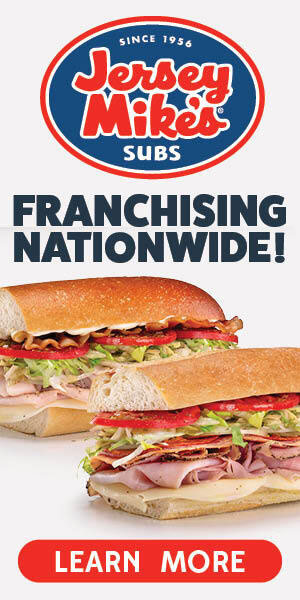Four Keys To A Solid Relationship Between Multi-Unit Franchisee and The Bank

Today, multi-unit franchises comprise 53 percent of the U.S. franchise market and 76 percent of all restaurant franchises.1 The future is bright—but the pressures of competition have grown with it. To navigate the challenges, a successful multi-unit franchise owner needs an active advisory team that may include the franchisee, franchisor, banker and any private equity investor involved.
Let’s begin by examining what I’ve observed as a provider of capital to players in this market. The most successful operators:
- Truly understand unit economics and have a commitment to operational excellence.
- Are driven to create value by maximizing the strength of the brand.
- Embrace creativity and innovation. (For example, Dunkin’s Munchkins and McDonald’s Egg McMuffin both came from franchisee ideas.)
- Implement the best practices from their franchise network.
When you have the right team in place, the four keys listed here will help you move forward with confidence.
1. Create synergy
Success calls for best practices. Your team can be a rich source of better ways to do business.
Your financial partners bring unique—and sometimes untapped—strengths to your plans. For example, if you have a private equity sponsor, they can offer experience from a wide range of industries—what works and what doesn’t.
And your banking partner should have both franchise and sector experience: understanding the nuances of a multi-unit franchise operation and the trends in your particular line of business. (A valued lending partner will have exposure to multiple businesses across your sector, so they can bring best practices from diverse companies.)
Together, the team can generate possibilities that might not surface from individual silos.
2. Set realistic expectations
Everyone involved will have a unique agenda. They all need to be on the same page.
The franchisee may want to create a multi-generational business with a 20- or 30-year time horizon. The private equity firm may be looking at a five- or seven-year window. Early on, both parties need to understand where their points of view differ.
Conflicting goals need up-front clarity—especially about capital needs. For example, if the franchisor plans to mandate reimaging all the units, that’s important to know sooner, not later, and to plan accordingly with your lending partner.
And at both the unit and scale levels, all parties need a solid understanding of the metrics. The clearer you are about reporting results, the more likely you are to engage investors. Measuring performance puts the focus squarely on creating value.
3. Be open and transparent
The news won’t always be good, but the response can be positive if everyone is rowing in the same direction. Sophisticated PE investors and lenders understand that you’ll have bumps in the road. For example, a franchisee with ten units may find challenges with one of them. You have better odds of overcoming them by facing them together with transparency.
Openness to new ideas—from within your brand and from others—leads to innovation. Consider the stresses of rising labor costs and ever-stronger competition for the dining dollar—they’re inspiring new applications for technology. For example, to reduce customer wait times, McDonald’s has installed ordering kiosks.
A successful multi-unit franchise shares information across the organization, from the CFO down to the operations people. That cooperation leads to the alignment of goals—and gives a sound advisory team a stronger basis for recommendations.
That’s especially true for your lender. The right one will be as committed to your business as you are, willing to go behind the counter and into the intricacies of your back-of-the-house operations.
Be open to collaboration. In a downturn, your team will share accountability for solving problems. When an opportunity arises, they’ll help you move decisively to capitalize on it.
4. Make sure your financial partners understand franchising
Dunkin’ multi-unit franchise owner Neal Faulkner advises, “Underfunding is the number-one challenge for franchisees. Some just focus on how much they need to get started, but not how much you’ll need to weather the eventual storms.”
You may need funding for equipment, real estate, or acquisitions. The more your financial partners appreciate the requirements of an enduring franchise, the better able they are to prepare a capital structure that supports growth and withstands stress.
“It can be helpful to have a spectrum of private equity sponsors involved,” says Stephen Spinelli, chairman of the board of Planet Fitness. “PE firms often vary greatly in their investment appetites, their capital limits, their exit timeframes and their risk tolerance. But together they can create a continuum of capital that supports ongoing growth.”
That’s why you should seek out a banker who is a specialist in franchising. Your banker will have personal contacts in the private equity world, helping you build a team with the right chemistry.
Just as important, your banker should understand the business model, how royalty streams work, how your brand creates value, and the importance of metrics and how they reflect your operations. Your banker may also know if there are there other growth opportunities that you should be aware of, or challenges others have faced. That category experience will lend even more weight to the strategic choices you make.
A high-performance advisory team must share a belief in your potential, have a passion for your business, and show a willingness to communicate freely. When you embrace the concept of an empowered team, you build a solid foundation for multi-unit growth.
(Opinions expressed are those of the author and not Webster Bank, N.A. Not intended as financial or any other professional advice. Consult a professional advisor with regard to your individual situation.)
Why Multi-Unit Franchise Ownership Is Now the Norm, Entrepreneur, June 2015
Ab Igram is the Managing Director, Head of Restaurant & Franchise for Webster Bank’s Sponsor and Specialty Finance. He’s been passionate about the world of franchising since his days as an Economics major at Northwestern University and an MBA student in Entrepreneurship/Finance at Babson. Prior to joining the Webster team, Ab was VP of GE Capital Franchise Finance. At Webster, he now focuses on deepening relationships with leading PE sponsors in the franchising sector and expanding opportunities for the bank’s specialty lending practices.
Share this Feature
Recommended Reading:
| ADVERTISE | SPONSORED CONTENT |
FRANCHISE TOPICS
- Multi-Unit Franchising
- Get Started in Franchising
- Franchise Growth
- Franchise Operations
- Open New Units
- Franchise Leadership
- Franchise Marketing
- Technology
- Franchise Law
- Franchise Awards
- Franchise Rankings
- Franchise Trends
- Franchise Development
- Featured Franchise Stories
| ADVERTISE | SPONSORED CONTENT |

$400,000
$250,000





 The multi-unit franchise opportunities listed above are not related to or endorsed by Multi-Unit Franchisee or Franchise Update Media Group. We are not engaged in, supporting, or endorsing any specific franchise, business opportunity, company or individual. No statement in this site is to be construed as a recommendation. We encourage prospective franchise buyers to perform extensive due diligence when considering a franchise opportunity.
The multi-unit franchise opportunities listed above are not related to or endorsed by Multi-Unit Franchisee or Franchise Update Media Group. We are not engaged in, supporting, or endorsing any specific franchise, business opportunity, company or individual. No statement in this site is to be construed as a recommendation. We encourage prospective franchise buyers to perform extensive due diligence when considering a franchise opportunity.